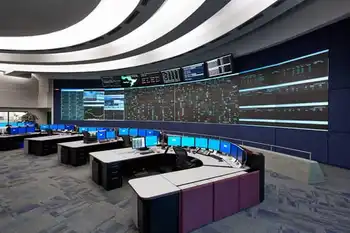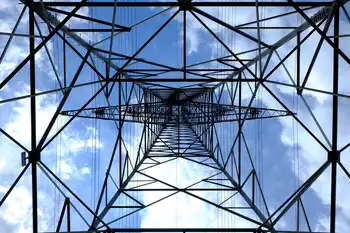Nuclear power among options for UN greenhouse cuts
By Reuters
High Voltage Maintenance Training Online
Our customized live online or in‑person group training can be delivered to your staff at your location.

- Live Online
- 12 hours Instructor-led
- Group Training Available
Nuclear power is the most contentious option for widening a U.N. mechanism under which rich nations can invest abroad, for instance in an Indian wind farm or a hydropower dam in Peru, and get credit at home for cutting greenhouse gas emissions.
"It's one of the issues that needs to be considered," Yvo de Boer, head of the U.N. Climate Change Secretariat, said of suggestions by countries including India and Canada at the June 2-13 talks of aid for atomic energy.
Other proposals at the talks include giving credits for capturing and burying carbon dioxide, for instance from coal-fired power plants, or to do far more to encourage planting of forests that soak up carbon as they grow.
Many nations and environmentalists oppose expanding the Clean Development Mechanism (CDM) to include nuclear power. The CDM is part of the United Nations' Kyoto Protocol for curbing emissions of greenhouse gases running until 2012.
"Nuclear power is not the energy of the future," said Martin Hiller of the WWF conservation group. "It should not be in the CDM. The CDM should be about renewable energy."
He said nuclear power was too dangerous although it emitted almost none of the greenhouse gases associated with burning coal, oil and gas and which are blamed for heating the planet.
No decisions on overhauling the CDM will be taken at the Bonn talks, part of a series of negotiations meant to end with a new long-term U.N. climate treaty by the end of 2009 to succeed the existing Kyoto Protocol.
"I think nuclear power in the CDM is a non-starter for most delegations," one European delegate said.
The debate reflects wide uncertainty about whether to turn to nuclear power as an alternative to fossil fuels in a fight to avert rising temperatures that could bring heatwaves, droughts, rising seas and more powerful cyclones.
De Boer projected that the CDM could channel up to $100 billion a year towards developing nations in coming decades if industrialized countries agreed sweeping cuts in emissions and made half their reductions abroad.
That was also based on the assumption that credits for averting greenhouse gas emissions would average $10 a tonne.
So far the CDM has projects approved or under consideration that would avert a combined total of 2.7 billion tonnes of emissions by 2012, roughly equivalent to the combined annual emissions of Japan, Germany and Britain.
De Boer rejected criticisms that the CDM was badly flawed, for instance for handing huge profits to carbon traders and companies in China that destroy HFC 23, a powerful greenhouse gas that is a waste product from making refrigerants.
"The fact that people have found a way to remove a powerful greenhouse gas and make a profit is not morally wrong," he said. "We've created a market mechanism and, guess what, it's working."
Other criticisms of the scheme focus on whether or not funding has led to emissions cuts, or whether these would have happened anyway - for example because of existing state support for wind power in China or India.











